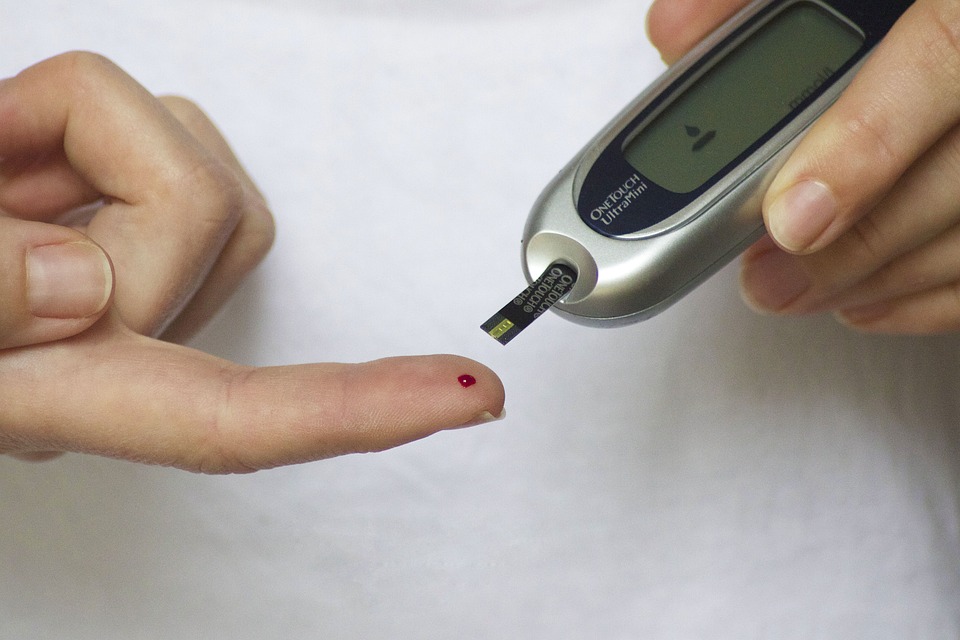
By now, you must have heard of intermittent fasting. The emphasis of this approach is on the timing of meals, not on the types of foods consumed.
Despite claims that fasting in intervals of drastically cutting calories and then returning to normal eating is the key to losing weight, recent investigations are questioning this notion.
Intermittent fasting may in fact work for certain people. Advocates of the program allege that it aids in shedding weight at a quicker rate than regular diets. Lowering the odds of developing heart problems, type 2 diabetes, and inflammations are other benefits of this. Though it may be beneficial for many, intermittent fasting can have negative effects for certain individuals.
Before you start following the latest dietary fad, remember that everyone’s bodies react to food differently. There exist different kinds of periods of fasting, and the results that men and women experience vary.
What is the cause of all this interest in this dietary plan? Before analyzing the merits and drawbacks of intermittent fasting, let us see what this recent trend in wellness is about.
What Is Intermittent Fasting?
IF is a dietary pattern that involves consuming meals within specific time frames. The pattern of dining alternates between certain periods of having food and abstaining from eating.
People fast for various reasons, including religious rituals. This method has been employed for many years to cure different medical conditions. You might be engaging in intermittent fasting unknowingly.
There are many different styles of intermittent fasting. Some programs involve completely cutting out food on certain days, while others involve limiting food intake to certain periods of the day. This makes it less daunting than the majority would imagine.
The three most frequent forms of intermittent fasting are time-limited nourishment, every-other-day fasting, and the two-times-per-week plan.
Types Of Intermittent Fasting
Time-restricted plans separate fasting and eating into two windows. The most common types of time-restricted eating are:
- 16/8: This type of Intermittent fasting involves fasting for 16 hours and eating within an 8-hour window. For instance, if you have dinner at 8 p.m., you would fast until noon the next day.
- 18/6: This type is when you fast for 18 hours and eat within a 6-hour window.
- 14/10: This is when you fast for 14 hours and only eat during the other 10 hours.
- 20/4: This type involves fasting throughout the day, barring a 4-hour window period.
The 5:2 method requires one to eat a balanced diet for 5 days out of the week while eating fewer calories on two days. You should limit your caloric intake to 500-800 calories on days when you are fasting. You have the option of deciding which days to abstain from eating, as long as you make sure there is at least a 24 hour period when you do not fast.
Alternate-day fasting involves fasting every other day. During fasting periods, you should reduce the amount of calories you consume to between 500-800, whereas on the other days, your eating should be typical.
While abstaining from food, you can drink water and beverages that do not contain any calories, such as black coffee and tea.
How Does Fasting Work?
No matter which type of intermittent fasting is followed, they all involve eating and abstaining from food at predetermined intervals. Our organs metabolize carbohydrates to foster energy production. When the body fails to receive the necessary glucose it requires, fat cells are utilized to convert into sugar as a source of energy.
After a period of time without eating, the sugar stored in the body is depleted and the utilization of fat as an energy source begins. This is known as metabolic switching. As the body utilizes stored fat, it generates ketones, which serve as an alternate form of energy when glucose levels are not sufficient.
The presence of increased amounts of ketones within the body is referred to as ketosis and is the desired result of following a ketogenic diet.
If you are partaking in four meals daily, snacking often, and not exercising, your body will always have a steady flow of glucose to utilize and will not be able to access its fat reserves. By practicing intermittent fasting, you are increasing the gap between meals which allows your body to burn off the calories eaten in the last meal, as well as start to burn fat.
Simple Rules Of Fasting
If you wish to have success with intermittent fasting for men, you must adhere to some guidelines.
First, get plenty of sleep.
Intermittent fasting is improved by having more rest, as it boosts your chances of continuing with the process since you have fewer waking hours in the day. In any case, sleep is beneficial.
This means that it requires less effort to adhere to the fast.
Drink coffee to hold you over.
It is completely your choice if you would like to put a single pump of cream in your coffee while following certain types of intermittent fasting. It is essential to not get too carried away. For instance, don’t put in two or three spoons of cream and a spoon of sugar.
Have all the food you plan to consume for the day within an 8 hour timeframe.
Choose an Eating Window You Will Stick To
If you choose the 16 hour/8 hour fasting/eating routine and you find it clashes with your exercise program and makes it difficult to eat when you should, you might need to adjust your plan to fit within your time constraints.
Intermittent fasting can be an effective method to promote weight loss, however, it will not be successful if you do not remain committed to the regimen.
The Benefits of Intermittent Fasting for Men
A pattern of eating that involves periods of consuming food as well as abstaining from it is known as intermittent fasting. There are different variations of intermittent fasting. Some folks may just do it twice over a seven-day period, while other individuals do it daily or on alternate days.
The advantages of intermittent fasting for men may be greater than what women experience, but this should be seen as a positive development for men. The evidence is unmistakable that intermittent fasting is advantageous for both genders.
Here are just a few of the benefits of intermittent fasting:
Intermittent Fasting Aids in Weight Loss
Intermittent fasting is extremely beneficial for men as it can help them shed pounds. It is essential that you don’t overeat during meal times. You should consume the same amount of food as you normally would over the course of the day.
Going on and off fasts for part of a 24-hour period will assist you in consuming less total food. Intermittent fasting can also boost the effectiveness of the fat-burning hormone. So long as we avoid having snacks, our insulin levels will decrease and our adipose cells will be able to let go of the glucose they have saved to be utilized as strength.
It has been determined that fasting for every other day calories can help reduce blood sugar levels, which can be advantageous for people who are diabetic and those aiming to lose weight.
Intermittent Fasting is Good for the Brain
Intermittent fasting has several benefits for the brain. Periodic fasting has the potential to raise the speed of the development of new neurons. This is beneficial to the brain. Cellular repair processes also improve when intermittent fasting. This gets rid of unnecessary material from cells and could potentially stop Alzheimer’s disease.
Periodic fasting can also lift amounts of a brain hormone named brain-derived neurotrophic factor (BDNF). When BDNF is lacking, the chance of going through depression is higher.
Intermittent Fasting May Benefit the Heart
The Intermountain Medical Center believes that taking breaks in between eating can benefit a person’s heart health. It is advantageous to hear this, since heart ailments are the most frequent sources of mortality globally.
Periodic fasting assists in reducing blood pressure, which is beneficial for the heart. LDL and total cholesterol levels will also be improved. Intermittent fasting will help to improve blood sugar levels.
Maintaining a healthy heart will reduce the risk of cardiovascular illness. If you come from a family with a background of cardiac-related issues, you may find that participating in intermittent fasting is something you should think about.
Intermittent Fasting Helps to Reduce Inflammation
The body’s reaction to external hazards like poisons and infections is inflammation. This is the mechanism the body uses to safeguard cells and tissues. Excess inflammation in the body is a distinct issue.
Inflammation that is too high is associated with kinds of lupus, rheumatoid arthritis, digestive tract ailments like ulcerative colitis, and gouty arthritis. Signs of inflammation may include aching joints, tenderness, swelling, lethargy, migraines, and tightness in the muscles.
Intermittent fasting can be beneficial in alleviating inflammation in one’s body.
Benefits to your physical body and health can be gained through periodic fasting. The perk of an intermittent fasting cycle is that you can shape it to fit your own lifestyle.
Increase the Effectiveness of Intermittent Fasting
It could be argued that intermittent fasting is the most talked-about weight loss technique of the year. People interested in losing weight are eager to adopt this diet due to the impressive weight loss that is achievable within a short span of time.
If you are pondering the possibility of utilizing time-restricted eating to facilitate in quick weight loss, here are some tips you should consider to aid in the success of your intermittent fasting diet.
Follow a Calorie Restricted Diet
This one is simple and obvious. Ensure that you are consuming nutritious items during times when you are having meals. Make sure to consume healthy carbs, lean meats, and load up on vegetables.
Include more food in your diet that will make you feel fuller, like eggs, fish, apples, nuts, and a wide variety of vegetables.
Increase Restricted Hours
Many people on a diet that are trying to shed pounds quickly through intermittent fasting limit their eating to only 12-14 hours. If you only eat for 16 hours a day, it can speed up your weight loss.
End your evening meals by 8 p.m., so the majority of your fasting time can be taken care of while you’re sleeping.
Protein First
When you have completed your intermittent fasting routine, make sure to focus on incorporating protein-rich foods into your diet. Consume protein-heavy foods like chicken, tuna, and turkey when your 16-hour fast comes to an end rather than quickly eating carbohydrates.
This assists in keeping your physique in fat-burning condition for a more extended time period, supplying your body with the required proteins as well.
Selective Carbohydrate Eating
Even when you’re not fasting, don’t rely on high-carbohydrate or sugary foods to help you reach your weight loss goals through time-restricted dieting.
Consuming low-glycemic carbohydrates instead of high-carbohydrate items will quicken your rate of weight reduction. You must be mindful when selecting carbohydrates for your diet, as they are an essential part of a nutritious diet.
Concentrate on having carbohydrates that transform into glucose at a more sluggish speed, and you will be shocked at how quickly you can drop weight.
Men Vs Women: How Is Intermittent Fasting Different?
Biological factors have influenced how both men and women have reacted to different scenarios such as fasting, resulting in distinct gender roles.
In a study from 2005, after three weeks of intermittent fasting, it was seen that women had a slightly lower glucose level compared to men. The men, however, had worse insulin responses.
In a 2006 experiment, males and females who abstained from eating anything for a period of 24 hours declared minor variations in terms of their feeling of appetite. The female participants in the study reported feeling more ravenous than the male participants.
Female individuals should be aware of the potential dangers they may encounter with regards to bone health, fertility, and overall health.
Research on animals has indicated that intermittent fasting could lead to variations in estrogen levels and have a detrimental consequence on reproductive processes, including fertility, menstrual regulation, gestation, and lactation. It is unclear at the moment if female humans endure the same effects.
Who Should Not Try Intermittent Fasting?
Individuals with particular medical issues should take extra precautions.
Those who need to take medications that require being taken with food should avoid doing intermittent fasting, as this could prevent them from eating meals.
Diabetics may be prone to hypoglycemia while refraining from eating, and when the condition is accompanied with anti-diabetic drugs, the sugar in the blood might decrease to a hazardous extent.
Going without food for a long period of time has been connected to a higher possibility of bulimia and overeating, so it is not encouraged for individuals with a past of food related issues.
Pregnant and breastfeeding women should avoid intermittent fasting. No exact research has been done to evaluate the consequences of fasting in the period between meals, but generally speaking, females need more nourishment than males and so should not partake in diets that limit their food intake.
Seniors are prone to falls or breaking bones because their energy consumption and level of glucose in their body can become irregular due to the practice of fasting for short periods of time.
Conclusion
Here are a few things to bear in mind when doing intermittent fasting as a man. The power of time-restricted dieting can work for you. If you make healthy eating habits and remain consistent with exercise over time, you can also have success with intermittent fasting.
Intermittent fasting pledges to assist with weight loss, better overall health, and provide a longer life, and is uncomplicated to abide by. Despite the benefits it brings, it can also come with drawbacks like side effects and environmental concerns. It’s critical to keep in mind that intermittent fasting is not suitable for everyone, and some people might find it better to steer clear of it. Consult with your medical provider prior to beginning any fasting program.














